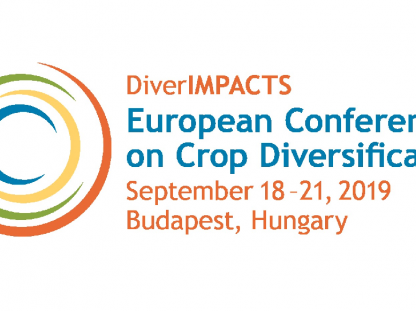Participatory Breeding in the 21st Century - New Publication
Participatory Breeding in the 21st Century, or can the ancient knowledge of plant breeding return to those who cultivate the land? Theoretical and practical information for organic farmers involved in participatory breeding activities
Modern plant varieties grown today consist of individuals containing the same genetic stock so, beyond their genetically determined adaptability, they are unable to change and further adapt to their environment, such as for example, to the weather extremes becoming more frequent or to the appearance of new diseases or pathogen races. Plant breeders must, therefore, continually develop new varieties. However, these varieties are usually unable to cope with special requirements or tolerate growing conditions that are significantly different from average.
Meeting the ever-increasing challenges of climate change, especially when also dealing with the special features and opportunities of organic crop cultivation, requires a new kind of approach and a search for new methods.
In contrast to the usual practice, the authors of this publication invite experimental growers on an adventure in which, like the farmers of bygone eras, they themselves can have a say, and even – literally – take control and contribute to the kind of varieties they wish to grow. In the practice of participatory breeding, farmers themselves play an active role, from setting goals to creating their own cultivars or populations, including meeting very specific needs.
This publication was created by the Hungarian Research Institute of Organic Agriculture (ÖMKi) in collaboration with colleagues from the Agricultural Institute ATK Martonvásár, which already has many years of experience in plant breeding.
In this work, we combine the professional knowledge of specific fields to provide a comprehensive overview of the theoretical and practical knowledge of participatory breeding. Furthermore, since they play a key role in terms of cultivation and seed production, we discuss in separate chapters the information required for sowing seed production and distribution, as well as the related legal conditions.
.png)


.jpg)





